Termites: What Hampton Roads Homeowners Need to Know Before It's Too Late


When it comes to destructive pests, termites are in a league of their own. Every year, they cause billions of dollars in property damage across the U.S.—and unfortunately, Hampton Roads is a hotspot for termite activity thanks to our warm, humid climate.
Many homeowners don’t even realize they have termites until the damage is already done. But with the right information—and the right pest control team—you can catch termite problems early, protect your home, and avoid costly repairs.
Let’s walk through everything you need to know about termites, including what to watch for, how to prevent infestations, and what to do if you think termites are already in your home.
Why Termites Are a Big Problem in Hampton Roads
The Tidewater region is especially vulnerable to termite infestations because of:
High humidity and rainfall
Mild winters that allow year-round termite activity
Lots of older homes with wood framing and crawlspaces
Termites thrive in moist environments, which means damp crawlspaces, leaky pipes, and improperly ventilated basements are all welcome invitations to these destructive pests.
Common Types of Termites in Hampton Roads
1. Eastern Subterranean Termites
The most common type in Virginia
Live underground and build mud tubes to access wood structures
Work silently and cause significant damage over time
2. Formosan Termites (less common but highly destructive)
Sometimes called "super termites"
Build massive colonies with millions of members
Can destroy wood much faster than other species
Are Termites Dangerous?
While they don’t bite or sting humans, termites pose a serious threat to your home:
They eat wood from the inside out, weakening structural supports
Damage often goes unnoticed until walls start warping or floors sag
Homeowners’ insurance typically doesn’t cover termite damage
One colony can number in the hundreds of thousands
The longer you wait, the more expensive the repairs.
Signs You May Have a Termite Problem
Termites are sneaky, but they do leave clues. Here’s what to look for:
Mud Tubes: Small, pencil-sized tubes along your foundation or crawlspace walls. These are highways for subterranean termites.
Discarded Wings: Winged termites (swarmers) shed their wings after mating. Finding small piles of wings near windowsills or baseboards is a red flag.
Damaged Wood: Termite-damaged wood sounds hollow when tapped and may have a blistered appearance.
Swarming Insects: Seeing flying termites indoors—especially in spring—could mean an active colony nearby.
Droppings (Frass): Drywood termites (rare here) leave behind small, pellet-like droppings that resemble sawdust.
How to Prevent Termites in Your Home
Prevention is key when it comes to termites. Here are some smart steps to take:
Keep moisture under control
Fix leaks and ensure gutters drain properly
Install vapor barriers or dehumidifiers in crawlspaces
Don’t store wood near your home
Firewood, lumber, and mulch should be kept several feet away
Seal cracks and entry points
Pay attention to foundation walls, utility lines, and window sills
Schedule annual inspections
Early detection is the best defense against damage
DIY Termite Treatment vs. Professional Solutions
Some homeowners try DIY termite bait stations or sprays—but unfortunately, these rarely eliminate the entire colony. Termites are highly organized and live deep underground or inside wood where sprays can’t reach.
DIY Limitations:
May kill a few termites but not the queen
Can give a false sense of security
Won’t stop future colonies from forming
Why Professional Treatment Works:
At Busby’s Precision Pest, we offer comprehensive termite control, including:
Thorough inspections (including crawlspaces)
Identification of infestation type and severity
Safe, proven treatments like liquid termiticides or bait systems
Preventive services and monitoring to ensure long-term protection
When Are Termites Most Active in Hampton Roads?
Swarming season usually begins in March or April and can last into summer. This is when winged termites leave their nests to form new colonies.
But remember: Termites never really stop working—especially in Virginia’s climate, where mild winters allow them to stay active all year long.
Frequently Asked Questions About Termites
Q: How long does it take for termites to damage a house?
A: It depends on the size of the colony, but significant damage can occur in as little as 6–12 months if left untreated.
Q: Can I treat termites myself?
A: You can try, but it’s rarely effective. Professional treatments target the entire colony, including the queen, and often include ongoing monitoring.
Q: Is termite treatment safe for my family and pets?
A: Yes. At Busby’s, we use EPA-approved treatments and always provide safety instructions if needed. We prioritize your family’s health and comfort.
Q: Do I need a termite inspection to sell my home?
A: Yes, most real estate transactions in Virginia require a WDI (Wood-Destroying Insect) inspection and NPMA-33 form. We provide both.
Our Termite Control Process
Here’s what you can expect when you call Busby’s Precision Pest:
Inspection: We thoroughly examine your home, crawlspace, and foundation.
Identification: We confirm the type of termite and level of infestation.
Treatment: We apply the right solution—whether that’s a liquid barrier or a baiting system.
Follow-Up: We return to check for continued activity and provide maintenance plans as needed.
Don’t Let Termites Eat Away at Your Investment
Whether you’ve already seen signs of termites or you just want peace of mind, now is the best time to act. The sooner you catch an infestation, the easier—and more affordable—it is to treat.
At BUSBY PRECISION PEST & DAMAGE CONTROL, we’re proud to protect homes across Chesapeake, Virginia Beach, Norfolk, and all of Hampton Roads. With honest pricing, expert service, and fast scheduling, we make termite control simple and stress-free.


